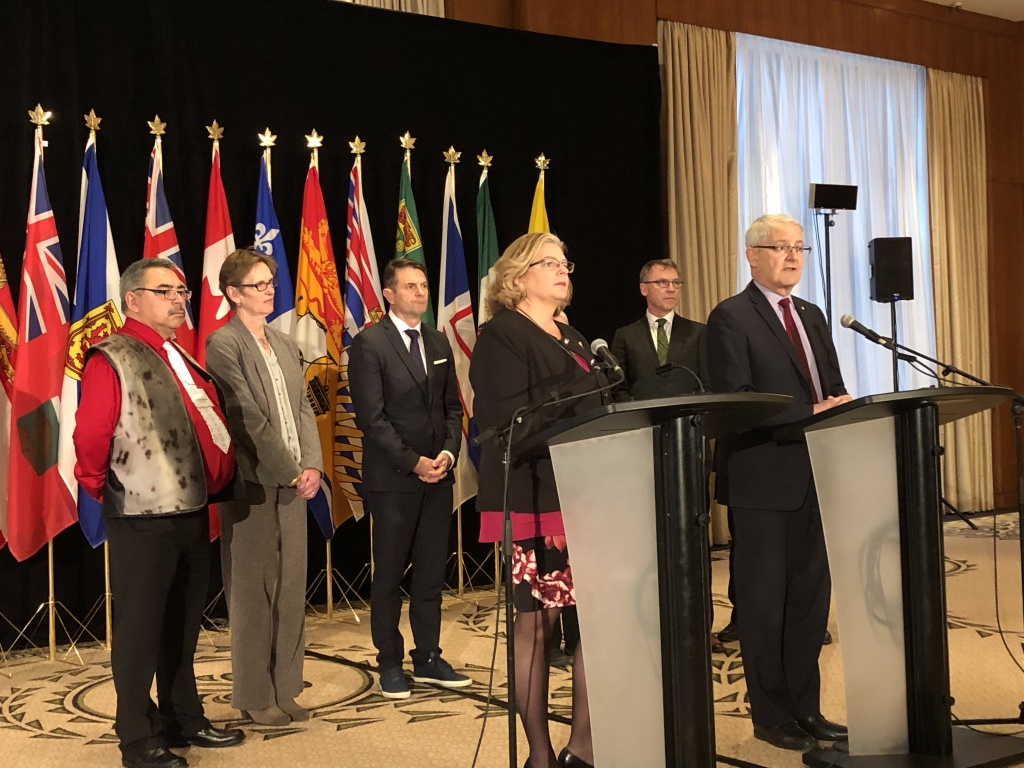Canada’s transportation ministers committed to developing a national entry-level driver training standard by 2020 — one of a series of trucking-related initiatives highlighted during a meeting in Montreal.
Provincial Ministers attended the annual meeting of the Council of Ministers with Federal Minister of Transportation, Marc Garneau.
“Ministers discussed the importance of strengthening commercial motor vehicle safety. In particular, they agreed to build upon and leverage the work undertaken by several jurisdictions to develop a standard for entry-level training for commercial drivers in Canada by January 2020. This standard will help ensure drivers have the necessary knowledge and skills to safely operate commercial vehicles,” it reads.
Ontario is the only Canadian jurisdiction to mandate entry-level training for truck drivers, although Alberta and Saskatchewan have both released the initial framework for mandates of their own.
Last April’s truck-bus crash in Saskatchewan that killed 16 people on a Humboldt Broncos bus – and a recent Ottawa bus crash that killed three people – were both cited as reminders that more needs to be done in the name of highway safety.
The ministers also promised more steps to protect vulnerable road users around heavy vehicles, referring to the recently published Safety Measures for Cyclists and Pedestrians Around Heavy Vehicles, released last October. So, too, did they endorse a recent Trucking Harmonized Task Force Report in a bid to eliminate interprovincial trade barriers and irritants.
“Ministers also agreed to establish the same weight limits for wide base single tires as dual tires within their respective jurisdiction.
This will further harmonize regulations, improve the productivity of trade corridors, and reduce GHG emissions to ensure that Canada’s transportation system supports the safe, competitive, and seamless transportation of goods,” the communique reads.
Support was also shown for advancing the uptake of zero-emission vehicles, exploring mandatory seat belts for school buses, collaborating on approaches to fight distracted and impaired driving, and promoting testing and investments in automated and connected vehicles.


